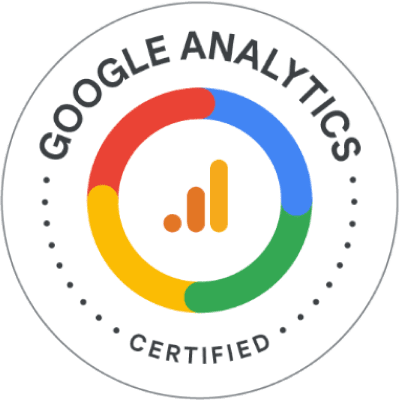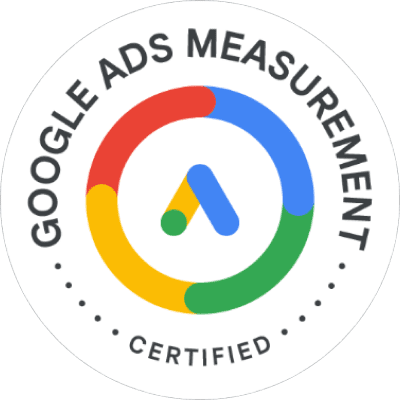New to the world of SEO? You’ve likely encountered conflicting advice on meta descriptions. Some claim they’re the holy grail of rankings, while others dismiss them entirely. The truth, as with most things in marketing, the SEO value of meta descriptions lies somewhere in between.
In this post, we’ll clear the air on meta descriptions. We’ll explore what they are, why they’re valuable (even if not a direct ranking factor), and equip you with top tips for crafting click-worthy meta descriptions that better your SEO game.
What Is a Meta Description?
A meta description is a concise (usually around 160 characters) blurb that summarises the content of your webpage and is usually displayed under the page title in search results. It acts like a tiny billboard in search results, enticing users to click and learn more. A great meta description is an important component of on-page SEO.

While not a direct ranking factor, a compelling meta description can significantly boost your click-through rate (CTR). Think of it as your elevator pitch to potential visitors. Here’s the technical nitty-gritty:
Location: The meta description tag resides within the <head> section of your webpage’s HTML code. It looks something like this:
HTML
<head>
<meta name="description" content="Here is the description of the web page.">
</head>
The Easy Way Out: Many content management systems (CMS) and plugins offer user-friendly interfaces (like WYSIWYG editors) to add your meta description without needing HTML knowledge.
How Important Are Meta Descriptions?
While Google claims that meta descriptions aren’t a direct ranking factor, the debate on their importance rages on.
So, here’s the deal: While Google might rewrite your meta description up to 63% (according to an Ahrefs study) of the time (yikes!), crafting good ones is still a wise SEO move. Here’s why:
- A well-written meta description acts like a click magnet in search results. It entices users with a clear and concise summary of what your page offers, potentially boosting your CTR.
- Even if Google rewrites your meta descriptions, your original content can still influence what appears in search results. Think of it as a suggestion box – the more relevant and informative your meta description, the higher the chance Google uses it (or elements of it) to craft the user-facing snippet.
- Google reserves the right to rewrite descriptions, but it doesn’t happen every time. There’s a chance your crafted description will shine through in search results, so make it count!

The bottom line? Invest time in creating unique and compelling meta descriptions. They might just be the difference between a curious searcher and a loyal website visitor.
In the next section, we’ll delve into the secrets of crafting meta descriptions that Google (and users) love.
How to Write a Good Meta Description
As we’ve seen thus far, meta descriptions are tiny powerhouses with th potential to supercharge your CTR. The question, then, becomes: what makes a meta description click-worhy?
Here’s the recipe for crafting meta descriptions that convert:
Align with Search Intent: Your meta description should be a beacon for users with the right intent. Research your primary keyword and analyse the snippets Google currently displays. Are they definitions, listicles, or in-depth guides? Model your meta description after these snippets to ensure it aligns with user expectations.
- Optimise Your Target Keywords With Search Intent In Mind: forget the keyword magic! Integrate your primary keyword naturally within your meta descriptions. Bonus points for including relevant semantic keywords to further enhance searchability. Remember, search engines highlight these keywords in search results, making your listing stand out.
- Compose Compelling Copy: Jargon takes a backseat here. Focus on clear, compelling language that ignites user curiosity and motivates them to click. Think of it as a captivating trailer for your webpage, succinctly summarise the value it offers.
- Include a Captivating Call to Action: A strong CTA can be the final push a user needs to click. Consider including a persuasive CTA like “Learn More” or “Read Now” to nudge users towards your content.
- Character Count Caution: Every character counts! Aim for a meta description between 50 and 160 characters. This way, you’ll for sure it’ll display fully in search results across devices.
Pro Tip: Don’t write in the dark! Utilise meta description checker tools to preview how your masterpiece will appear in search results.
How to Optimise Meta Descriptions
We’ve covered the essential ingredients for a click-worthy meta description, but how do you take your descriptions from good to great? Here are some advanced tactics to unleash your inner creative genius:
1. Write More Than One Meta Description
Don’t settle for the first draft! Challenge yourself by crafting multiple meta descriptions for a single page. Then, dissect each one, extracting the most compelling elements. Combine and refine to create a masterpiece that surpasses your initial attempts.
2. Clear Up Any Clutter
Keywords are crucial, but not at the expense of clarity. Your first draft might be a keyword-stuffed mess. Edit. Edit. Edit! Ruthlessly eliminate unnecessary words and phrases until your description shines with crystal-clear, compelling language. Remember, the character count is your friend – aim for around 160 characters.
3. Avoid the Passive Voice Like the Plague
Passive voice puts users to sleep, active voice compels them to click. Supercharge your meta descriptions with active voice constructions. Tools like Hemingway App can help you identify and replace the passive voice with its more persuasive counterpart.
Meta Description FAQs
1. How long should a meta description be?
Aim for 160 characters or less. Remember, some characters take up more space visually. Use a SERP preview tool to ensure your description displays fully in search results.
2. Why does Google change my meta descriptions?
Google prioritises user intent. If your meta description doesn’t fully align with the user’s search query (e.g., not mentioning a key term), Google might rewrite it to provide a more accurate description. Think of it as Google optimising for the best user experience.
3. Can I stop Google from rewriting my meta descriptions?
No, but you can write compelling descriptions that reduce the likelihood of rewrites. Focus on user intent and include relevant keywords.
4. Can I use the same meta description for all my pages?
Definitely not! Each webpage has unique content, so your meta descriptions should reflect that. Craft distinct descriptions that accurately summarise each page’s purpose.
5. Are meta description generators a good idea?
Hold off on the AI-powered shortcuts. While meta description generators have improved, they still lack the human touch. For inspiration, research meta descriptions for your primary keyword in search results.
6. Can I have multiple meta descriptions for one page?
Unfortunately, no. Each page can only have one designated meta description. Focus on optimising this description around your primary keyword, the term with the highest search volume.
Parting Thoughts on Meta Descriptions
Sure, Google might not directly factor meta descriptions into ranking algorithms. But here’s the truth: they’re a hidden weapon in your SEO arsenal.
A compelling meta description acts like prime real estate on SERPs, attracting users with a clear and concise summary of your content. Don’t let this valuable space go to waste! Invest time in crafting descriptions that resonate with your target audience and compel them to click.
Ready to take your meta descriptions to the next level? Here’s a pro tip: become a master spy in the world of SERPs! Research the meta descriptions Google displays for your target keywords. Learn from what you see and use those insights to craft descriptions that are even more effective.
By following the tips outlined in this post, you’ll transform your meta descriptions from afterthoughts into click magnets, ultimately driving more traffic to your website.
Need an SEO Partner?
Ready to craft meta descriptions that captivate users and propel your SEO strategy forward? We’ve equipped you with the knowledge and tactics to write descriptions that Google (and users) will love.
But wait, there’s more!
At Hawk SEO, we’re SEO champions dedicated to your success. Our comprehensive suite of SEO services caters to every need, from in-depth keyword research services to powerful link building strategies. You can do better than generic descriptions – let our team of SEO experts craft compelling meta descriptions that supercharge your click-through rates and elevate your brand’s online presence.
Ready to dominate the SERPs? Schedule a free SEO consultation today and unlock the full potential of click-worthy meta descriptions!




